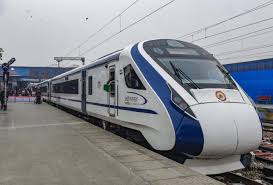by KS

UNITED STATES: McAfee Charged with Tax Evasion
If your computer uses McAfee as its antivirus program, you might want to read this.
On Oct. 5, an indictment was unsealed charging John David McAfee with tax evasion and willful failure to file tax returns, announced Principal Deputy Assistant Attorney General Richard E. Zuckerman of the Justice Department’s Tax Division and U.S. Attorney D. Michael Dunavant for the Western District of Tennessee. The June 15, 2020 indictment was unsealed following McAfee’s arrest in Spain where he is pending extradition.
According to the indictment, John McAfee earned millions in income from promoting cryptocurrencies, consulting work, speaking engagements, and selling the rights to his life story for a documentary. From 2014 to 2018, McAfee allegedly failed to file tax returns, despite receiving considerable income from these sources. The indictment does not allege that during these years McAfee received any income or had any connection with the anti-virus company bearing his name.
According to the indictment, McAfee allegedly evaded his tax liability by directing his income to be paid into bank accounts and cryptocurrency exchange accounts in the names of nominees. The indictment further alleges McAfee attempted to evade the IRS by concealing assets, including real property, a vehicle, and a yacht, in the names of others.
If convicted, McAfee faces a maximum sentence of five years in prison on each count of tax evasion and a maximum sentence of one year in prison on each count of willful failure to file a tax return. McAfee also faces a period of supervised release, restitution, and monetary penalties.
An indictment merely alleges that crimes have been committed. The defendant is presumed innocent until proven guilty beyond a reasonable doubt.
Principal Deputy Assistant Attorney General Zuckerman and U.S. Attorney Dunavant commended special agents of IRS-Criminal Investigation, who conducted the investigation, and Trial Attorney William Guappone of the Tax Division and Assistant U.S. Attorneys Matthew Wilson and Damon Griffin, who are prosecuting the case.
EUROPE: Nagorno-Karabakh Conflict Escalates
The United Nations Secretary-General has condemned the continuing escalation of violence in the Nagorno-Karabakh conflict zone, reminding all sides of their obligations under international humanitarian law to protect civilians and civilian infrastructure.
Secretary-General António Guterres “is gravely concerned by reports of the extension of hostilities, including the targeting of populated areas,” read a statement issued by his spokesperson, Stéphane Dujarric, on Oct. 5.
“He reminds all sides of their obligations to protect civilians and civilian infrastructure under international humanitarian law,” the statement added.
The Secretary-General also underlined that there is no military solution to the conflict and urged the sides to immediately cease all hostilities.
He appealed to all relevant regional and international actors to actively exercise their influence to achieve an urgent end to the fighting and return to negotiations under the auspices of the OSCE Minsk Group Co-Chairs.
At a regular press briefing, Mr. Dujarric provided a humanitarian update on Nagorno-Karabakh, noting that the UN Office for the Coordination of Humanitarian Affairs (OCHA) remains deeply concerned about the ongoing hostilities along the line of contact in the conflict zone.
“Our humanitarian colleagues tell us that the hostilities reportedly continue to cause the loss of civilian lives and injuries, as well as damage to civilian properties and infrastructure,” he said.
“From the beginning of the latest round of hostilities to today, more than 40 civilians have reportedly been killed and more than 200 others have been wounded on both sides. Hundreds of houses have been seriously damaged,” added the spokesperson.
Mr. Dujarric called on all sides to respect international human rights law and international humanitarian law, in particular by ensuring the protection of the civilian population and by preventing damage to essential civilian infrastructure.
“The UN country teams in both Yerevan and Baku stand ready to respond to humanitarian needs as they emerge. Neither government has requested international assistance from us,” he added.
In a statement released by UN Children’s Fund UNICEF, the agency noted that it was now 10 days since violence “escalated dramatically” in the Nagorno-Karabakh conflict zone.
There are already reports of four children killed and seven injured, said the agency, noting that “without an end to the fighting, these figures will tragically increase.”
“The fighting is destroying homes, and damaging schools and other essential infrastructure. We urge all parties to protect civilians and civilian infrastructure, from further harm, in line with international and humanitarian law.”
ASIA: Unprecedented Indian Engineering
An ambitious plan to make one of the world’s largest and most complex railway networks a net zero carbon emitter by 2030 is moving full steam ahead, although without the steam, thanks, in part, to support from the United Nations Environment Program (UNEP).
With over 68,000 kilometers of track and serving over a mind-boggling eight billion passengers a year, Indian Railways is vast and amongst the most complicated and involved transport systems in the world.
And, perhaps not surprisingly, moving hundreds of thousands of passengers each day across tens of thousands of kilometers of network requires enormous amounts of energy, energy which in the past has often been provided by burning polluting fossil fuels. Those fuels have been identified as one of the key drivers of climate change.
India’s transport sector contributes to 12 percent of the country’s harmful climate-inducing gas emissions with railways accounting for about 4 percent of that. One solution is to actually use the railways more and road transport less. Indian railways has committed to increasing the amount of freight transported by rail from about 35 percent in 2015 to 45 percent by 2030.”
Even though it takes a lot of fuel to move a train, passenger and freight-mile emissions are much lower than levels recorded by vehicle traffic.
“Due to economic development and increased consumption, there is an increasing demand on the resources,” said Vinod Kumar Yadav, Chairman of the Railways Board.
The Indian Government has been working on greening the railways, with over half of the network electrified, and a target to electrify the entire network in the next three to four years. Electrification would introduce a more centralized, efficient power system and make higher emitting diesel engines redundant.
“We need to take care of the environmental concerns along with the economic development to ensure sustainability’, said Mr. Yadav. “Indian Railways has embarked on a mission to improve energy efficiency and replace fossil fuel sources with renewable energy sources like solar and wind to achieve net zero carbon emissions by 2030.”
Reaching that goal would mean eliminating emissions of 7.5 million tons of carbon dioxide (CO2) each year, about the same as two coal power plants.
The United Nations Environment Program (UNEP) has been supporting the efforts of Indian Railways, providing advice and training on sustainability and the green economy.
Atul Bagai, Head of UNEP’s India Office, said, “India’s rail network has long been an integral part of the country’s societal fabric. Greening the railways not only is vital to achieve the Government’s climate objectives but is also an important symbol of India’s environmental initiative. UNEP is proud to assist these efforts through training and other support.”
CARIBBEAN: Haiti Under Duress
Violent protests sparked by the murder of a high-profile legal scholar are threatening to push Haiti into a spiral of instability, Special Representative Helen La Lime told the Security Council on Oct. 5, as she outlined UN efforts to help overcome the impasse engulfing the country.
Special Representative Helen La Lime, who also heads the UN Integrated Office in Haiti (BINUH), said apprehension about the future has been palpable since the Aug. 28 assassination of Monferrier Dorval, President of the Port-au-Prince Bar Association, a tragedy that, for many, epitomizes the weak state of the rule of law across the Caribbean nation.
“The slaying of Maître Dorval constitutes a tragic loss for Haitian society as he represented an example of civic engagement and commitment to the promotion of the rule of law,” she said, stressing that even the perceptions of insecurity – especially in populous neighborhoods of Port-au-Prince – have grown more acute, with gangs challenging State authority and a “Fantom 509” fringe group of disaffected police officers bringing disorder to the capital city.
As police and judicial authorities struggle to meet Haitians’ legitimate demands for accountability, violence persists. “The widespread perception of impunity which these dynamics elicit can only be countervailed by ensuring that the rights of victims of human rights violations and abuses are upheld and that perpetrators are held to account,” she said.
To be sure, the National Police service has consistently proven its operational proficiency since assuming sole responsibility for providing security, she said. Yet, it would still require at least 10,000 well-trained and equipped police officers to meet internationally accepted policing standards.
Officers need to be adequately funded and equipped by their Government to overcome recurrent shortcomings, she stressed.
Stressing that acute political polarization and weak State institutions are well-known catalysts for violence, she said President Jovenel Moïse’s appointment of a new Provisional Electoral Council has similarly elicited “strong reactions” from the Court of Cassation, purportedly because of its lack of representativeness and scope of mission.
“The continued lack of trust between political forces is impeding all but the slightest progress on priorities that had previously garnered a wide consensus across the political spectrum”, she said – notably on the need to reform the constitution – prior to fresh elections.


